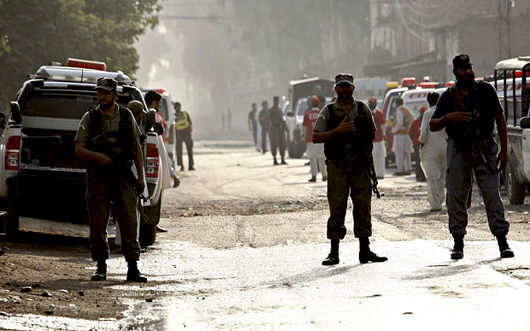Peshawar, Sep 18: In a brazen attack, heavily armed Taliban militants tried to storm an air force base in this restive Pakistani city today, sparking a fierce gunbattle with the security forces that left 13 terrorists dead and at least 22 people injured.

Up to 10 gunmen wearing explosives-laden jackets and armed with hand-propelled grenades, mortars, AK-47 rifles attacked a guard post as they tried to fight their way into the Badaber air base on outskirts of Peshawar, the capital of Khyber Pakhtunkhwa province.
"Terrorists attacked guard room early morning. Quick reaction force reached, surrounded, isolated them," military spokesman Major General Asim Bajwa tweeted.
"The Quick Response Force of the Pakistan army immediately responded and killed eight terrorists," he said. At least 22 people, including eight soldiers and two senior army officer, were injured in the attack.
Tehreek-e-Taliban Pakistan (TTP) claimed responsibility for the attack. "Our suicidal unit carried out the attack," TTP spokesman Muhammad Khurasani said in an email statement.
Bajwa said security forces reached the area shortly after and sealed it off but a gun battle is still under way. "Clearance ops still underway. Searching for hidden terrorists," Bajwa tweeted.
Army chief General Raheel Sharif has left for Peshawar.
The Badaber air base is not functional and it was mostly being used as a residential place for the employees and officers of the air force.
Peshawar has frequently been targeted by militants. Last December more than 150 people, mostly children were killed when Taliban gunmen attacked an army-run school.
Last month, heavily-armed militants stormed an aerodrome in Balochistan province, destroying its radar system and killing two engineers.
Militants had also attacked the Jinnah International Airport in Karachi in June last year in which 36 people were killed, including 10 militants.






Comments
Add new comment